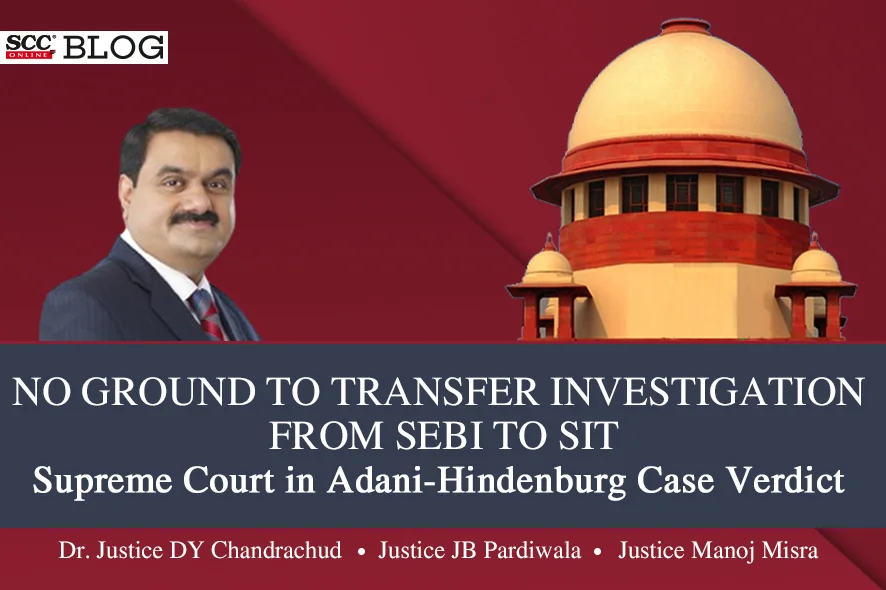Supreme Court: In a bunch of petitions seeking examination of allegations of fraud made in Hindenburg Report against Adani Group of Companies, the Bench of Dr. DY Chandrachud, CJI, JB Pardiwala and Manoj Misra, JJ. held that there was no ground for transferring the investigation from SEBI to SIT.
The Court rejected the Organized Crime and Corruption Reporting Project (‘OCCRP’) report or the reliance on third-party organization report in the absence of any verification. It further said that “Reliance on newspaper reports and third-party organizations to question the statutory regulator does not inspire confidence. They can be treated as inputs but not conclusive evidence to doubt SEBI probe.”
The Court explained that the Supreme Court’s power to enter the regulatory framework of SEBI was limited, and that no valid grounds were raised by the petitioners for directing SEBI to revoke its amendments on FPI and LODR Regulations, which according to the Court did not suffer from any infirmities. Noting the fact that SEBI had completed investigation in 20 out of 22 matters, the Court directed SEBI to complete investigation in the rest of matters within 3 months. The Court expressed that “The power to transfer investigation must be exercised in exceptional circumstances. Such powers cannot be exercised in the absence of cogent justifications.”
The Court directed the Government of India and SEBI to take into consideration the recommendations of Expert Committee for strengthening investors’ interest. They were further directed to look into whether there was any infraction of law by the Hindenburg report on short selling, and if so, act in accordance with the law.
Before concluding, the Court cautiously expressed that the public interest jurisprudence was developed for providing access to Courts for ordinary citizens, and that the petitions bereft of adequate research or substantiated reports could not be accepted.
Source: Press
Image Source: Gautam Adani / LinkedIn






